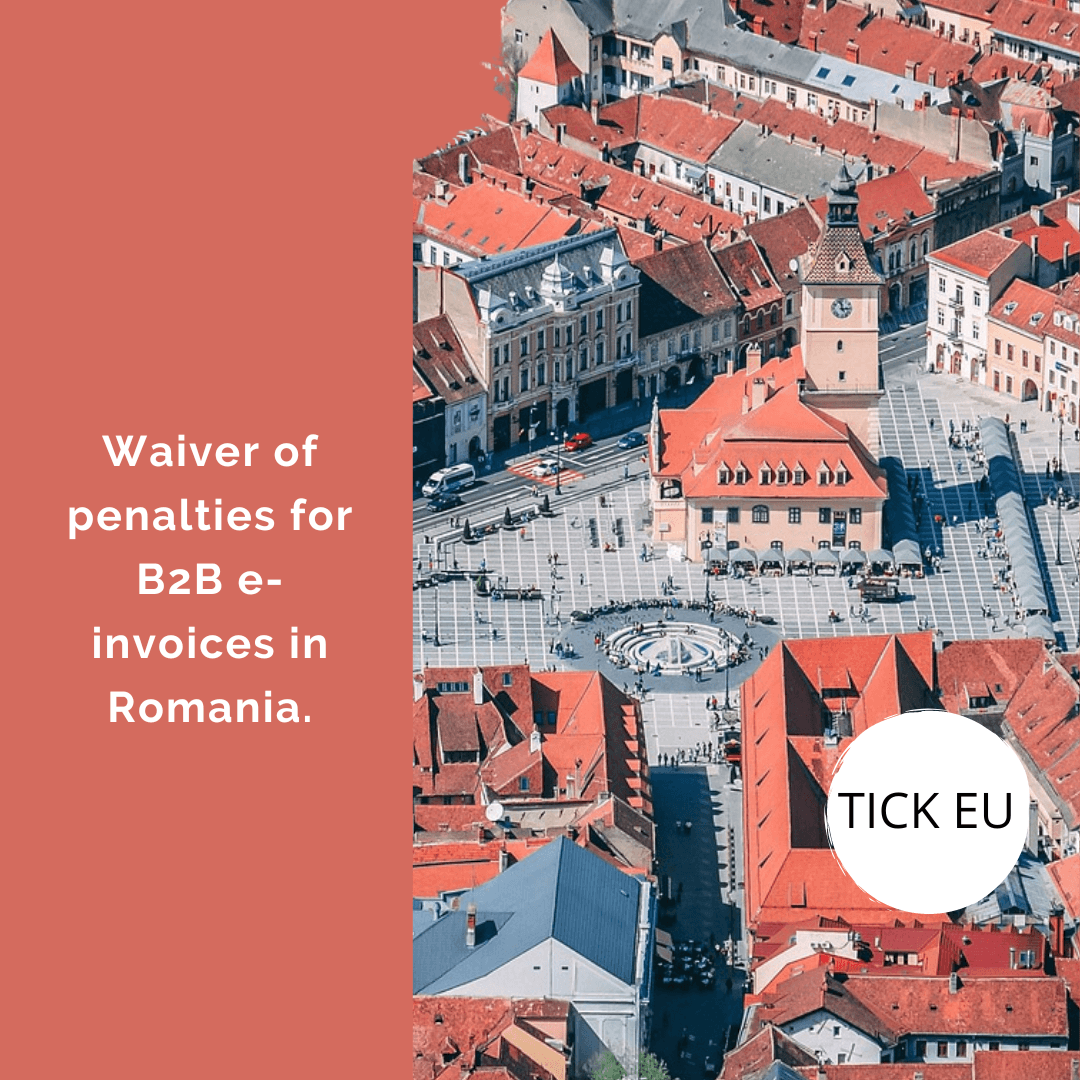After the initial phase of mandatory e-invoicing implementation in Romania in January 2024, an extension of the penalty waiver period until May 31 was envisaged in a draft regulation issued on March 23.
This process consists of two stages:
- January 2024 – Establishment of a temporary reporting regime for invoices between January 1 and June 31, 2024, without penalties. This will require digital reporting of invoices in XML format (in addition to paper invoices) within 5 working days from issuance. This will be done on the Virtual Private Space (SPV) in the RO e-invoicing system. This applies only to domestic supplies – exports and intra-community supplies are not required. No penalties will be imposed for non-compliance until May 31, 2024. July 2024 – Full, early pre-clearance of electronic invoice shipments via the eFactură platform will come into effect in July 2024. Paper invoices will not be accepted to meet tax requirements.
The Romanian e-invoicing regime from July will require sending invoices for pre-clearance in the CIUS_RO format – UBL 2.1 or CIN – to the government portal for pre-clearance. This will involve basic validation checks regarding the information and format of the e-invoice.
- December 2023: New guidelines and expanded exemptions from penalties Romania issued new decrees regarding changes and penalties in the planned B2B e-invoicing regime, which will be implemented in two phases in 2024. The new regulations (Government Regulation in the Form of Law No. 115/2023) include:
Simplified invoices for goods and services are exempt from penalties; Invoices for exports, non-resident counterparts, or B2C are exempt; The law introducing B2B electronic invoicing for domestic and foreign businesses was approved by Parliament and the President. December 12, 2023: user manual issued
The Romanian Ministry of Finance issued a user manual for the new mandatory e-invoicing system introduced in January 2024.
The manual covers the following topics:
- registration;
- access;
- free invoicing
- application;
- generating invoices in XML format;
- downloading invoices;
- conversion to PDF format;
- archiving;
- Frequently Asked Questions;
- and other information.
October 2023: Law approved for January 2024 almost temporary reporting of B2B invoices; full B2B e-invoice pre-clearance in July 2024.
Monthly reporting of Romanian SAF-T transactions was launched in January 2022 by the Romanian tax authority, ANAF.
Romania’s ANAF (National Agency for Fiscal Administration) already introduced mandatory B2B e-invoicing in fraud-sensitive sectors in July 2022, including:
- Vegetables,
- fruits,
- roots,
- edible bulbs,
- other edible plants
- Alcoholic beverages
- Mineral products
- New construction
- Clothing and footwear
- Update from July 27 – The European Council approves the proposal for Romanian e-invoicing on January 1, 2024.
The European Council approved the European Commission’s proposal to allow mandatory national VAT e-invoicing in Romania from January 1, 2024. This consent was necessary to enable Romania to deviate from Articles 219 and 232 of the EU VAT Directive, which limit the government’s mandatory e-invoicing. Romania applied for this permission in 2022. Romania’s original plan was to implement it in July 2022.
Separately, the EU proposes to remove the requirement for permission to deviate from the EU VAT Directive regarding e-invoicing from January 1, 2023. This is part of VAT reforms in the Digital Era.
B2G e-invoicing has been mandatory since July 1, 2022, using the RO eFactură protocol.
Romania applies the Italian SdI pre-clearance model, including continuous transaction controls (CTC), which has proven to be very effective in reducing VAT gap – the difference between forecasted and actual revenues from indirect taxes. Romania has the highest VAT gap in the EU at 34%.
INFORMATION ABOUT E-INVOICING IN EUROPE:
These pieces of information provide a general overview of the state of e-invoicing in some European countries and may change with the evolution of regulations and technologies.


